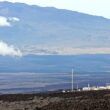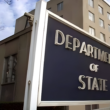Greg Thielmann, senior fellow, Arms Control Association, and former director of the Strategic, Proliferation, and Military Affairs Office of the State Department’s Bureau of Intelligence and Research
March 4, 2014
President Vladimir Putin has attempted to exploit the political instability in Ukraine through the use of Russian military forces to compromise the sovereignty and integrity of a sovereign country in open violation of international law, the explicit commitments given to Ukraine in the 1994 deal securing Ukraine’s non-nuclear status, and contradicting his own oft-stated justification for supporting such reprehensible leaders as Bashar al-Assad in Syria.
As President Obama has said, such behavior will have costs. Although the negative impact on Russia’s legitimacy and prestige is immediate, it is necessary for the United States, the European Union, and the international community to ensure that the long-term potential costs are also clearly understood.
With all of the anguished deliberations in the West about coordinating responses to Russia’s blatant and illegal power grab in the Crimea, there is, fortunately, little discussion of military responses. Along with the proximity of Ukraine to Russia and the bonds of history and ethnicity which unites so many of their citizens, the existence of US and Russian nuclear weapons also plays a role in discouraging Western military intervention. Without prejudice to the desirability of pursuing a nuclear weapons-free world, one can readily acknowledge that these arsenals introduce an element of caution as well as risk to the calculations of Western leaders.
At the same time, the bloat in the current US and Russian nuclear arsenals that persist so long after the fall of the Berlin Wall has been exposed as having no utility, just as the Cold War alert postures are shown to be archaic. Does anyone believe that the widening US lead in operationally deployed warheads under the New Strategic Arms Reduction Treaty (now nearly 300) confers any useful leverage for Washington in dealing with Moscow over Ukraine? Does anyone think that Russia would be emboldened if the United States maintained “only” 1,000 warheads as President Obama has proposed?
While the United States and the EU are already moving to impose sanctions and political retaliation against Russia to compel Putin to withdraw his forces, the most useful long-term response would be to extend to Ukraine the kind of economic and political help that facilitates good governance and greater independence from Moscow. Kiev must be persuaded that it made the right decision in its early days of independence to forego the nuclear weapons option—a message that needs reinforcement in many corners of today’s world.
Greg Thielmann
senior fellow
EXPERT COMMENTARY
Arms Control Association, and former director of the Strategic, Proliferation, and Military Affairs Office of the State Department’s Bureau of Intelligence and Research













